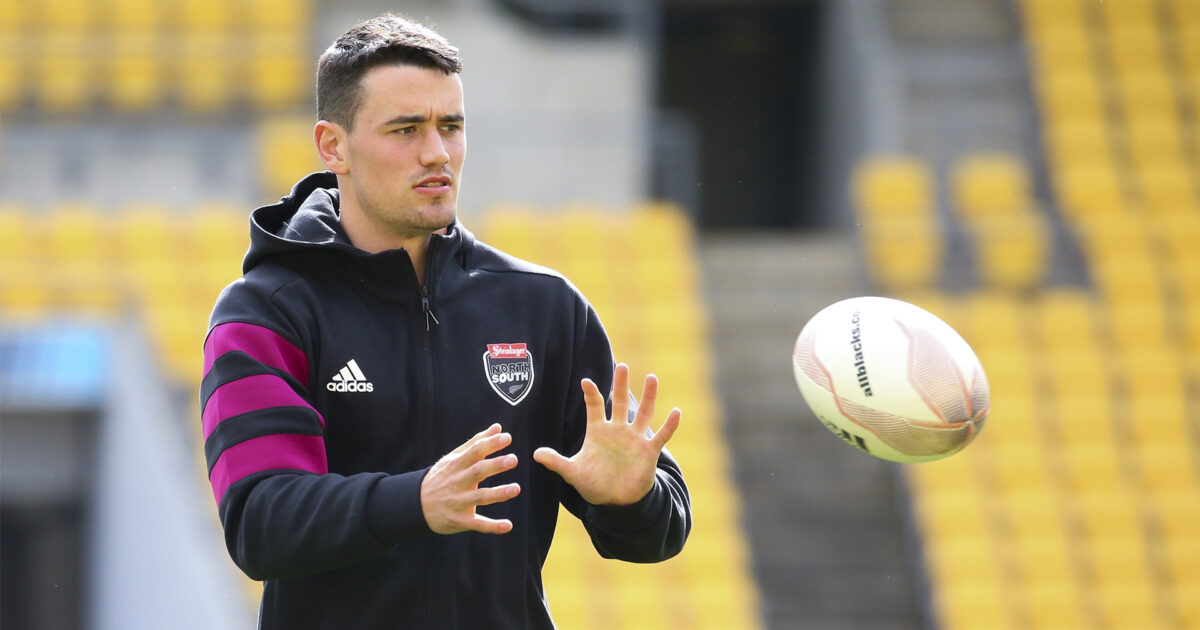Ian Foster likely to unleash string of rookie All Blacks against Wallabies in Bledisloe I

Ian Foster’s maiden All Blacks team will contain something old, something new, and harness the intent to leave the Wallabies blue. Striking the balance between proven experience and the injection of enthusiastic rookies, though, is one of the most difficult parts of the job.
For all the benefits modern technology provides coaches, selection remains an intuition skill.
Many variables – form, experience, body language, temperament – come into play. That scenario is further complicated when assessing whether a rookie is ready for the test arena, and whether they are ready to be thrown into the fire or be eased in from the bench.
With six rookies in his first All Blacks squad, Foster is certain to unleash some in the opening Bledisloe Cup test against the Wallabies in Wellington on Sunday afternoon.
Tupou Vaa’i , the 20-year-old Taranaki prospect, is in line for his debut off the bench behind starting locks Sam Whitelock and Patrick Tuipulotu. Blues No 8 Hoskins Sotutu could do likewise, with Ardie Savea likely to start at the back of the scrum alongside captain Sam Cane and a physical blindside flanker, with Shannon Frizell, Akira Ioane, Dalton Papalii and Cullen Grace all options to fill that role.
And in the outside backs, Caleb Clarke and Will Jordan are knocking on the door following standout Super Rugby campaigns.
Don’t expect Foster and fellow selectors John Plumtree and Grant Fox to make wholesale changes from the World Cup semifinal defeat to England last year, though. Twelve players that started that match almost one year ago remain in this 35-man squad. All could be involved in starting this new era.
In an interview with the Herald, Foster outlines his selection challenges.
“Some of these guys we’ve met a week ago in terms of being able to train with them. We haven’t been able to watch these guys in their franchise environments week-in, week-out with the travel restrictions so we’re learning a lot as we go. We’re getting to know the players and seeing them in the game we want to play and seeing what their actions are like.
“Are we afraid to put some young players in? No we’re not. The reason we picked them is because they’re good enough. Now we need to see how they fit in and adjust to being an All Black. If that adjustment is quick then they’re on the selection radar straight away.”
Much of the focus outside the camp this week will, of course, be consumed by who starts at No 10. The Richie Mo’unga-Beauden Barrett debate has largely overlooked the prospect of the duo starting together, however, with Jordie Barrett potentially shifting from fullback to the right wing.
The World Cup semifinal defeat in which the All Blacks pack was steamrolled left the backline on the backfoot, playing behind the gain line all evening in Yokohama.
Tupou Vaa'i's rapid rise from Super Rugby obscurity to a new All Black in the space of about three months took many by surprise, none more so than him and his family.https://t.co/SbUT4Fsd8e
— RugbyPass (@RugbyPass) October 6, 2020
Otherwise, though, the All Blacks were content with the way the Mo’unga-Barrett playmaking partnership progressed, and in the first test of the year they may be tempted to give it another crack.
Whatever selection Foster makes at No 10, and to a lesser extent in the competitive midfield and outside backs this week, he knows it will provoke polarising opinion.
“Is it going to be difficult? It’s not because I know what I’m going to do so I’m pretty relaxed about it.
“The fact is we’ve got two guys we’re more than happy to start and I’m sure at some stage this year they’ll both be playing in the 10 jersey. It’s a matter of how and when we do that.
“I’ve got the same dilemma in the midfield and on the wings. That’s the beauty of selection. The team we pick is going to get judged and we understand that. The team the critics pick doesn’t get judged. That’s all part of being an All Black.
“We’re excited about building this whole squad, building depth, that’s what this whole year is about.”
Foster announced his 23-man squad for the Wallabies to the team this morning but won’t reveal his hand publicly until Friday.
For New Zealand’s expectant rugby public, that wait will be tormenting.
“Everyone is anxious to see what the pecking order is like. Right now we’ve been trying to build this into a tight group. The hardest part is trying to hold them back a little bit.
“There are some tough decisions right across the board – we can all see that.”










































































